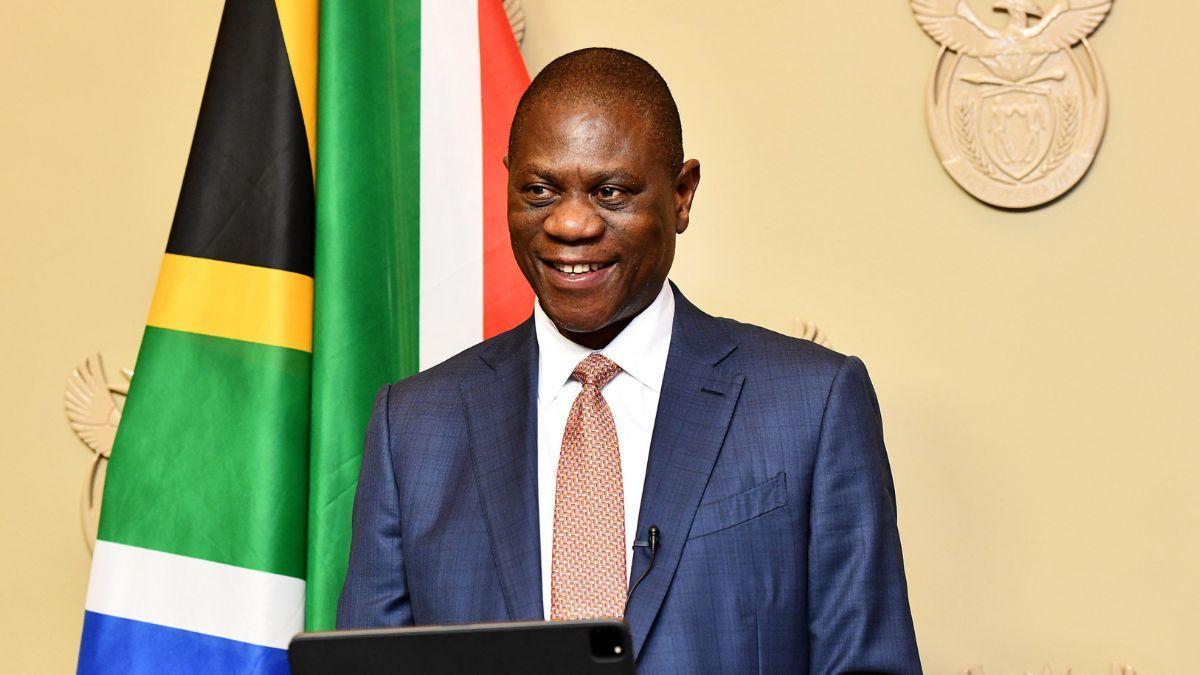Africa-Press – South-Africa. Deputy President Paul Mashatile has doubled down on Broad-Based Black Economic Empowerment (BBBEE), insisting that it is not a failed policy and has not contributed to unemployment in the country.
The Deputy President likened scrapping BBBEE to returning to Apartheid, and said it is a crucial policy for the empowerment of black people in South Africa.
These comments come as calls to scrap BEE have increased, ignited by pressure from Washington to address some of the country’s controversial policies, such as BBBEE and Expropriation.
Mashatile made these comments in response to a question posed by DA MP Paul Swart in a recent National Council of Provinces Plenary.
In his questions, Swart pointed to South Africa’s high unemployment rate, which increased by 0.3 percentage points to 33.2% in the second quarter of 2025 compared to the first quarter.
Given this high unemployment rate, Swart argued that the country is “past due for a review of your party’s failed policies over the past 30 years”.
He questioned why the government persists with “job-killing policies” like BBBEE and bargaining council restrictions.
He claimed that the DA has shown that scrapping these policies in favour of targeted non-racial entity-based empowerment would open up opportunities for SMMEs and create much-needed jobs.
“Must we as South Africans wait for another expensive talk shop instead of urgent reform taking place in our country?” he questioned.
In his response, Mashatile insisted that BBBEE is not a failed policy and added, “In fact, I think it must be implemented more rigorously”.
“Because you see, the BBBEE policy deals with the empowerment of those who have been disadvantaged in the past,” he said.
“It is not correct that we are in a country where black people are probably 90% of the population, but 70% is controlled by others. It can’t be allowed. It will never be allowed.”
“Anybody who says we must scrap it means we must go back to Apartheid. You basically say leave the economy in the hands of whites, and that’s how this country is going to work.”
“It will never be allowed. Black people must be empowered by this policy of BBBEE. And we have seen, honourable members, that it does work.”
He added that this policy is not the reason for South Africa’s high unemployment, attributing it to geopolitical concerns instead.
BEE under fire
While South Africa’s black economic empowerment (BEE) policies have been hotly debated for years, calls to scrap the policy have increased over the past few months.
These calls were largely ignited when the issues made headlines after the United States provided preconditions for normalising bilateral relations with South Africa.
One of these conditions was exempting US entities from all BEE requirements, meaning any race-based legislation constituting a non-tariff trade barrier should not apply to US entities.
However, the ANC has doubled down, dismissing calls to review or scrap the policy in South Africa.
This, along with other failures to negotiate with Washington, means South Africa was among the countries that could not secure a better trade deal with the United States.
Therefore, South African goods imported into the United States now face a 30% tariff, one of the highest among the countries slapped with US tariffs.
Frans Cronje Private Clients economist and partner Bheki Mahlobo recently explained that South Africa must stop taxing capital on arrival through its empowerment policies.
Instead, he said the country must secure property rights by abandoning expropriation without compensation (EWC) to improve its relations with the United States.
He said these policy steps and a slight shift in South Africa’s foreign policy could enable the country to secure a favourable trade deal with the United States and attract billions in investments.
“South Africa can compete by regulation and by law to attract investment into the country,” Mahlobo recently told the Free Market Foundation.
However, he said the country has actually been doubling down on policies that have inhibited its progress, highlighting BEE and EWC.
Mahlobo explained that these policy choices have harmed South Africa on the international and domestic levels. For the past decade, South Africa’s economy has averaged an annual growth rate of 0.8%.
In particular, the policy of BEE has been particularly damaging for South Africa, as it has only benefited a handful of connected individuals.
“Certain individuals have benefitted from this regime and, at a broader scale, South Africa’s investment levels from other countries have declined,” Mahlobo said.
“These countries, including the US, which has made the point most explicitly, have said that BEE is a form of taxation on the commitment of capital investment into the country. It is not only the Americans that are saying that.”
For More News And Analysis About South-Africa Follow Africa-Press






